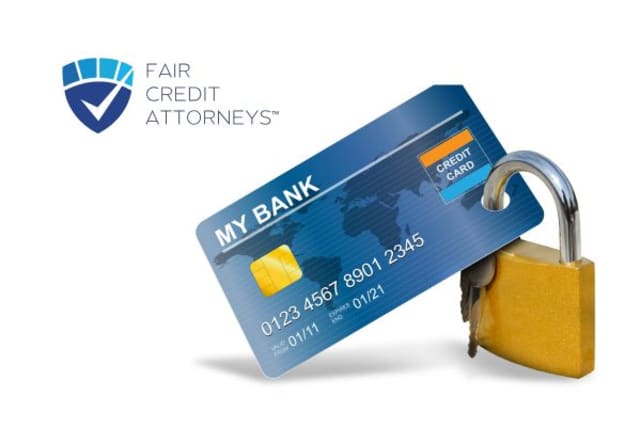If you are dealing with challenging credit issues, you’ve likely considered a credit repair service. However, when your financial future is on the line, the person you choose to help you is crucial.
Navigating inaccurate credit reporting and the maze of credit bureaus requires more than just sending standardized dispute letters. It requires an understanding of the law and the power to enforce it. The best way to secure your financial recovery and protect your rights under the Fair Credit Reporting Act is to hire a dedicated Credit Report Attorney.
We provide the direct legal representation and strategic approach that a non-law firm cannot. If you are ready to stop the cycle of ineffective disputes and leverage real legal remedies for your credit report errors, learn about your options by scheduling a free credit consultation with Fair Credit Attorneys today.

The Illusion of the Quick Fix: What Credit Repair Companies Do
Many people turn to credit repair services hoping for a fast solution to a damaged credit score. Credit repair companies primarily operate by sending generic dispute letters to the credit agencies—Experian, TransUnion, and Equifax—on your behalf.
Their core service is essentially a documentation service, relying on the sheer volume of dispute letters to sometimes catch a reporting agency error or a failure by the agency to verify information within the mandated timeframe. They promise to remove negative, derogatory information, such as late payments or collection accounts, but their methods are limited and often frustratingly slow, leading to little long-term improvement in your credit history.
They often charge recurring monthly newsletter fees, which quickly add up without delivering the financial freedom they promise. The Credit Repair Organizations Act (CROA) attempts to regulate these entities, but actual consumer protection against fraudulent practices remains weak, and their services often fall short.
The Legal Roadblocks Credit Repair Companies Cannot Overcome
The main limitation of a credit repair service is its lack of legal mechanisms and enforcement power. They are credit counseling organizations, not law firms, which puts them at a profound disadvantage when dealing with the powerful credit bureaus and collection agencies.
Learn More: Fair Credit Attorneys are experienced FCRA attorneys
They Cannot Remove Truthful Information
Credit Repair Companies often imply that they can magically erase accurate items from your credit reports. In reality, they cannot. A truthful late-payment history or a legitimate debt collection account will remain, provided the reporting agencies and data furnishers verify the information as accurate.
No amount of dispute process letters can legally compel a creditor to remove correct, negative data. Only a goodwill letter, which you can often send yourself, or a negotiated debt settlement agreement, which a Debt settlement company might handle, can impact verified, negative reporting.
The Risk of Frivolous Disputes
To justify their fees, some credit repair services will file mass disputes, even on items that are likely accurate. This can lead to the credit bureaus flagging your credit disputes as “frivolous,” which can slow down legitimate dispute errors and damage your credibility.
These aggressive tactics sometimes veer into legal trouble for the companies themselves, and they offer no legal representation or legal remedies for consumers if the disputes fail or if they face a lawsuit from a creditor.
Related: Learn more about the common types of credit report errors
Zero Legal Enforcement Power
When a credit bureau or creditor refuses to correct a verified reporting error, a Credit Repair Company hits a wall. They have no standing in court. They cannot file a lawsuit in federal court to enforce your consumer rights under the Fair Credit Reporting Act (FCRA).
Their power ends at sending a certified letter. This fundamental lack of legal remedies makes their service a gamble where the odds are stacked against the consumer.

The Power of the Law: Why a Consumer Attorney is the Better Choice
Choosing a Consumer Attorney or one of the dedicated Credit Report Lawyers is a fundamentally different approach. It’s not about sending mass mailings; it’s about targeted legal strategy and wielding the power of the law.
A consumer protection attorney is bound by professional codes of conduct, the American Bar Association, and ethical practices, ensuring your personal information and case are handled with integrity and real accountability.
Targeted Legal Strategy
A Consumer Attorney starts with a thorough investigation of your credit reports. They don’t just dispute everything; they target specific credit report errors, violations of the Fair Credit Reporting Act, and potential identity theft issues.
This detailed review can uncover deeper problems, such as inaccurate late payments, unauthorized user accounts, or issues with debt collectors that violate the Fair Debt Collection Practices Act. They focus on the legal definition of accuracy and maximum compliance, building a case ready for litigation if the reporting agencies fail to comply.
Contact: Fair Credit Attorneys offer free consultations
Enforcement Through Litigation
The moment a credit bureau fails to correct a proven error after a legitimate legal notice, your attorney has the power to act. A consumer protection lawyer can file suit in federal court to dispute credit bureau errors and force the correction of inaccurate or fraudulent practices.
This threat of litigation and the court processes itself is the single greatest difference. The credit agencies and collection agencies take legal action, filed by a law firm, far more seriously than a dispute letter from a credit repair service.
Ethical and Holistic Guidance
Beyond litigation, a Credit Report Attorney provides holistic guidance. We can advise on securing Credit Cards, debt negotiation, and even consult on related financial issues, sometimes working alongside a bankruptcy attorney or credit counselors from non-profit organizations.
This ethical and comprehensive support ensures long-term stability and protection, moving you toward financial recovery, not just a temporary fix.
Compensation, Contingency, and Real Accountability
One of the most attractive aspects of working with a Consumer Attorney is the typical fee structure, which contrasts sharply with the monthly fees charged by Credit Repair Companies.
Did You Know? The Fair Credit Attorneys can assist with mixed credit reports
No Upfront Fee Gimmicks
In most credit reporting cases, a Credit Report Attorney operates on a contingency fee basis. This means there are no attorneys’ fees or monthly charges unless we secure a victory for you, either through a negotiated settlement or a judgment in court. We only get paid if you win. This model ensures that the law firm’s goal is perfectly aligned with yours: getting the maximum result and the fastest resolution.
This structure flips the financial risk:
- Credit Repair Company: You pay monthly or upfront regardless of results. If they fail, you lose your money.
- Consumer Lawyer: They only get paid if they win, meaning their financial success is tied directly to your successful outcome.
Securing Monetary Damages
A major benefit is the ability to secure monetary damages. The FCRA and other consumer reporting laws allow for the recovery of actual damages, statutory damages, and, critically, the payment of your attorney’s fees by the losing credit bureau or creditor.
You can be compensated for the emotional distress and financial harm caused by the inaccurate reporting. This is a level of compensation and accountability a credit repair service simply cannot offer.

Long-Term Consultation Stability and Protection
When a case concludes, the corrections are made via a legally binding settlement or court order. This provides a level of finality and long-term stability to your credit reports and credit scores that is superior to a simple correction made after a dispute letter.
Furthermore, you will have established an attorney-client relationship, giving you a trusted source for future consumer protection or credit and identity theft monitoring concerns.
Next Steps to Financial Recovery
The choice is clear: a limited, non-legal service or the full power of a dedicated Credit Report Attorney. If you are struggling with identity theft, collection account settlement issues, or stubborn credit report errors, you need a powerful legal mechanism on your side. Stop wasting time and money on ineffective credit repair services. Start your journey toward financial freedom and secure your consumer rights.
Contact us today at (866) 381-6444 for a free, confidential credit consultation to review your credit reports and discuss a powerful legal strategy.
FAQs
- Can a Credit Repair Company sue the credit bureaus if my dispute is ignored? No. This is the most significant difference. A credit repair service, as a non-law firm, lacks the legal authority to represent you in court or file a lawsuit against the credit bureaus (Experian, TransUnion, Equifax) or creditors. If your dispute is ignored or the error is not corrected, their process stops. Only a licensed Credit Report Attorney can file suit in federal court to enforce your rights under the Fair Credit Reporting Act (FCRA) and pursue monetary damages.
- How much does a Credit Report Attorney cost compared to monthly credit repair services? Most reputable Credit Report Attorneys handle FCRA violation cases on a contingency fee basis. This means they charge no attorney’s fees or monthly charges unless they successfully win your case or secure a settlement. Furthermore, the FCRA allows for the losing party (the credit bureau or furnisher) to pay your attorney’s fees. Conversely, credit repair companies often charge recurring monthly fees that can add up to hundreds or thousands of dollars without any guarantee of results.
- What’s the difference between credit repair and credit restoration? In practical terms, there is no meaningful legal difference; both are marketing terms used by Credit Repair Companies or services. They generally refer to the process of disputing errors on your credit reports to improve your credit score. Neither term grants a non-law firm the authority to perform true Credit Restoration, which legally involves litigation, securing monetary damages, and enforcing the Fair Credit Reporting Act—actions only a licensed Credit Report Attorney can take.



